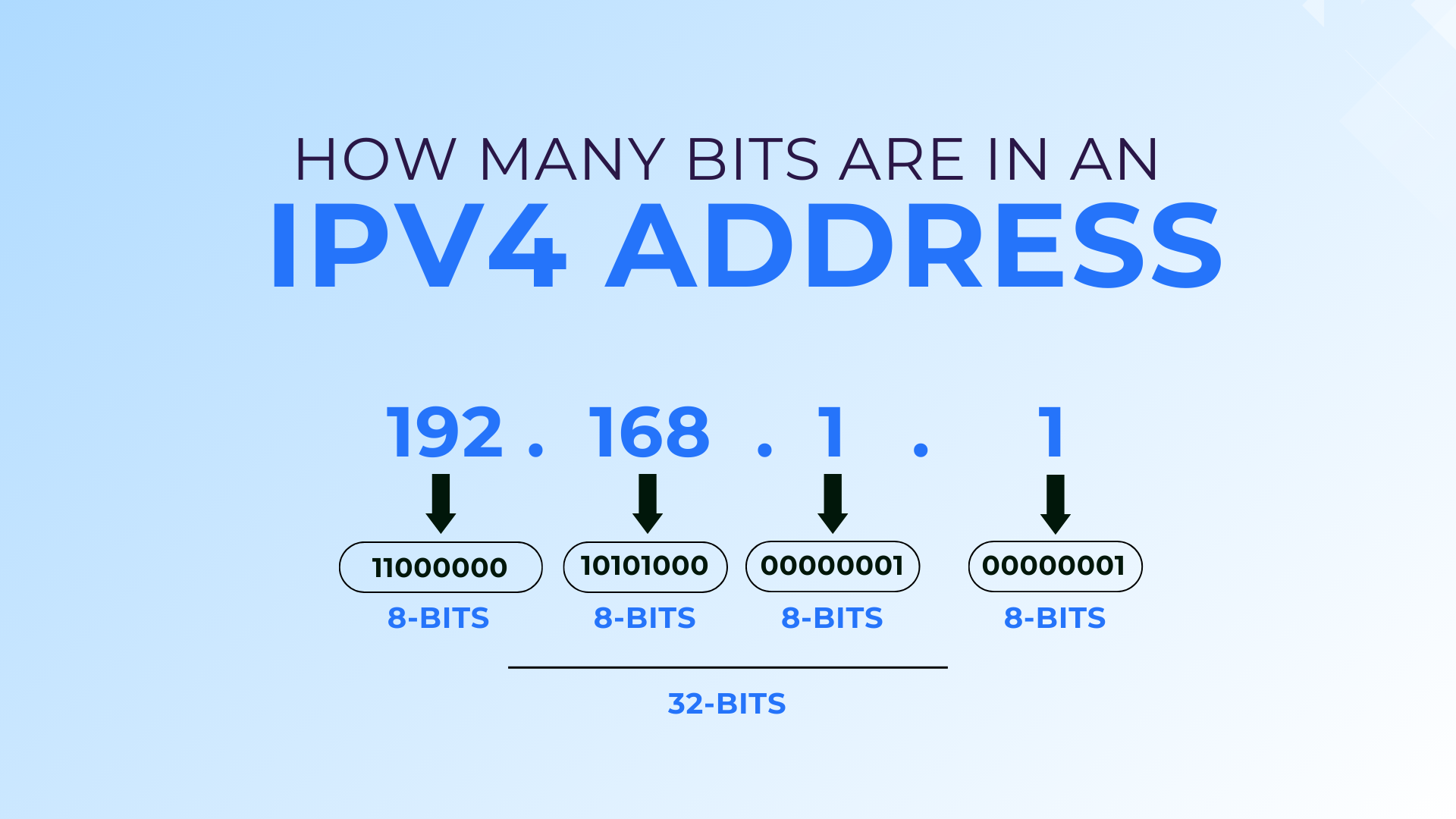The Internet Protocol version 4 (IPv4) continues to be the backbone of internet communication in the large world of networking. IP is a protocol that help to identify and connect with other devices with the help of a unique numerical address. It has a 32-bit address structure, which is normally in a form of dotted-decimal format like 192.168.1.1. The addresses include network and host parts, which enable optimal data routing over networks. IPv4. Through this guide, we will discuss how many bits are in IPv4.
How Many Bits Are in IPv4: Basics Explained
Internet Protocol version 4 is also popular as IPv4. It involves the use of 32 bits to come up with unique addresses of devices linked through the network. These 32 bits are categorized into four blocks that comprise 8 bits. Each octet is in the form of a dot. The number may vary between 0 and 255. In this structure, IPv4 can accommodate approximately 4.3 billion distinct addresses.
Nevertheless, the use of the internet and other devices is rapidly growing, so the idea to buy IPv4 address is virtually depleted. Hence, this has prompted the invention of IPv6, which utilises 128 bits to come up with a very vast address space. Meanwhile, IPv4 is still popular nowadays due to its ease and compatibility with the systems and networks that are already in place.
Importance of Understanding IPv4 Bits
Efficient IP Management
Knowing the IPv4 bits structure is the ability to assign, trace, and manage IP addresses correctly by professionals. It guarantees the correct distribution of resources, prevents conflicts as well as facilitates the smooth running of networks. Effective IP management reduces downtimes and improves scalability in expanding network environments.
Network Design and Planning
The understanding to lease IPv4 address is a key to constructing stable as well as properly built networks. It assists the network engineers in developing logical subnet partitioning, address space planning and future growth expectations. Hence, this knowledge will facilitate smooth communication and excellent network performance among all systems that are connected through.
Security/Firewall/Subnetting
The IPv4 bit knowledge is helpful in enhancing network security as it helps in proper firewall rules and subnetting. Hence, it supports learning the weak points, limiting access of unauthorized people, and isolating sensitive areas of data. Appropriate set-up guarantees greater security against cybercrime as well as data integrity across the network.
Network Traffic Flow Optimization
Awareness of buying IPv4 space enables the administrators to adjust the routing and minimise unnecessary traffic congestion. Additionally, it promotes wiser application of bandwidth and faster communication among gadgets. Network traffic is more optimized to increase the speed of the network, its reliability, and the overall experience of users in both large and small networks.
Insights About Real-World Applications of IPv4
IPv4 is suitable for day-to-day digital activities, in both residential as well as office internet networks. It facilitates the identification of IoT devices. They can be used to make smart systems to communicate effectively. Web hosting and DNS are based on IPv4 to provide a quick and reliable way of directing the user to the website.
IPv4 is also helpful to facilitate communication between applications via cloud-based communication and APIs. Hence, it is relied upon by network monitoring and management tools as a guarantee of reliable and safe connectivity. Despite any technological progress, IPv4 is the core of international communication on the internet. It helps to unite the devices and billions of users on various levels and in multiple territories every day.
Why IPv4 Still Matters in Today’s World?
Although IPv6 is increasingly very common, IPv4 remains very crucial in modern-day networking. Its extensive compatibility with devices as well as networks makes its operations run without significant upgrades. IPv4 provides easy implementation at a cost, with the support of modern tools and security solutions that are reliable.
An active trading marketplace in IPv4 addresses is also beneficial to businesses that want to expand their online presence in an efficient manner. This category of trading platforms facilitates getting the necessary address space without the dashboard for IPv6 transitions. IPv4 has been proven to be a pillar of digital communication and business connectivity in the world.
FAQs: Common Questions People Often Ask
1. What is the number of bits in an IPv4 address?
Each IPv4 address has 32 bits. They are available in four 8-bit octets displayed in dotted-decimal form, including 192.168.1.1.
2. What is the number of potential IPv4 addresses?
The maximum possible number of IPv4 addresses is 4,294,967,296. You can calculate it as 2 to the power of 32 different combinations of bits.
3. What is the key distinction between IPv4 and IPv6?
IPv6 has 128-bit addresses compared to IPv4, which has 32-bit addresses. This offers many more IP addresses.
4. Why is IPv4 still common today?
Although the use of IPv6 has become common, IPv4 is still prevalent because of its compatibility, stability and cost-efficiency.
5. What is a private IPv4 address?
The private IPv4 addresses are non-routable and are operated in the local networks. They are used in internal communication without using the public IP space.
Your Gateway to Reliable IPv4 Solutions: Partner with us now!
Looking to buy, sell, or lease IPv4 addresses? IPV4 TradeHub provides trusted, verified, and secure IP trading services tailored to your business needs. With our transparent marketplace, expert guidance, and global network reach, we make IPv4 acquisition simple, legal, and cost-effective. Don’t let address shortages slow your growth. Partner with us today and unlock seamless connectivity for your organization.
